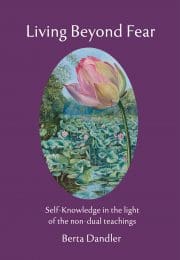Self-Examination on the Path of Light
One step towards this higher self-awareness is the practice of self-examination. Setting aside a few minutes for self-examination, we place our mind before us, so to say, and take a detached look at its condition. We remember our highest purpose: progress towards enlightenment. We then review the day’s actions, reactions and thoughts, in the light of this purpose, asking such questions as: ‘What have I been doing, and why? How much time did it take up, and was it justified? How have my reactions been? How has my conversation been? How often have I remembered my ideals? Why did such-and-such a happening disturb my peace of mind? What has been the motive behind my actions?’
We also need to recognize that the personality functions in the realm of imperfection and change, and that we will not find perfection in it. Then what is the value of self-examination? It helps us to detach ourselves from our primary instrument, the mind. If we can stand back and examine our mind, we are learning to look on the mind objectively, and to weaken our sense of identity with the mind, which is the source of bondage. In self-examination the mind is viewed from a higher vantage point within ourselves.
In the Upanishads, the innermost Self is also called the inner ruler, that which rules the mind from within. Under self-examination, it is possible to say to our mind: ‘You did not react well earlier on. You lost your temper. But for the rest of the day, I, your ruler, am commanding you to keep calm whatever happens.’ Self-examination means looking at the mind objectively, instead of being identified with it. It also means remembering that we are, in truth, the inner ruler of the mind and can give a direction to its activities. In this way, we can slowly disentangle ourselves from our emotions. For these, too, are transient visitors to the stage of our mind, chiefly fed and sustained by the support and importance we give them.
Self-examination should be done in a spirit of calm supervision, not charged emotion based on remorse or regret. Everything in the inner world can be transformed through the influence of the all-knowing power within us. As St Paul said: ‘I can do all things through Christ which strengtheneth me’. This means to trust the inner light and to take refuge in it.


